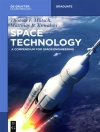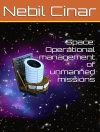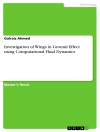The Yearbook on Space Policy, edited by the European Space Policy Institute (ESPI), is the reference publication analysing space policy developments. Each year it presents issues and trends in space policy and the space sector as a whole. Its scope is global and its perspective is European. The Yearbook also links space policy with other policy areas. It highlights specific events and issues, and provides useful insights, data and information on space activities. The first part of the Yearbook sets out a comprehensive overview of the economic, political, technological and institutional trends that have affected space activities. The second part of the Yearbook offers a more analytical perspective on the yearly ESPI theme and consists of external contributions written by professionals with diverse backgrounds and areas of expertise. The third part of the Yearbook carries forward the character of the Yearbook as an archive of space activities. The Yearbook is designed for government decision-makers and agencies, industry professionals, as well as the service sectors, researchers and scientists and the interested public.
Cuprins
The year in Space 2016.- Space for sustainable development.- Challenges of development and the role of space.- Reflecting on a decade of collaboration between NASA and USAID: Deriving value from space for international development.- The sustainable development goals: A new space for action?- Space applications for development, The Indian approach.- Supporting sustainable development with outer space activities.- Space agencies’ perspective on space for sustainable development.- Earth observation for humanitarian operations.- The field, its needs and new technologies.- financial and non-financial aspects of sustainable development.- Satellite connectivity for development.- At the edges – vulnerability, prediction, and resilience.- Emerging approaches in development efforts: Chinese perspective on space and sustainable development. – Facts and Figures.












